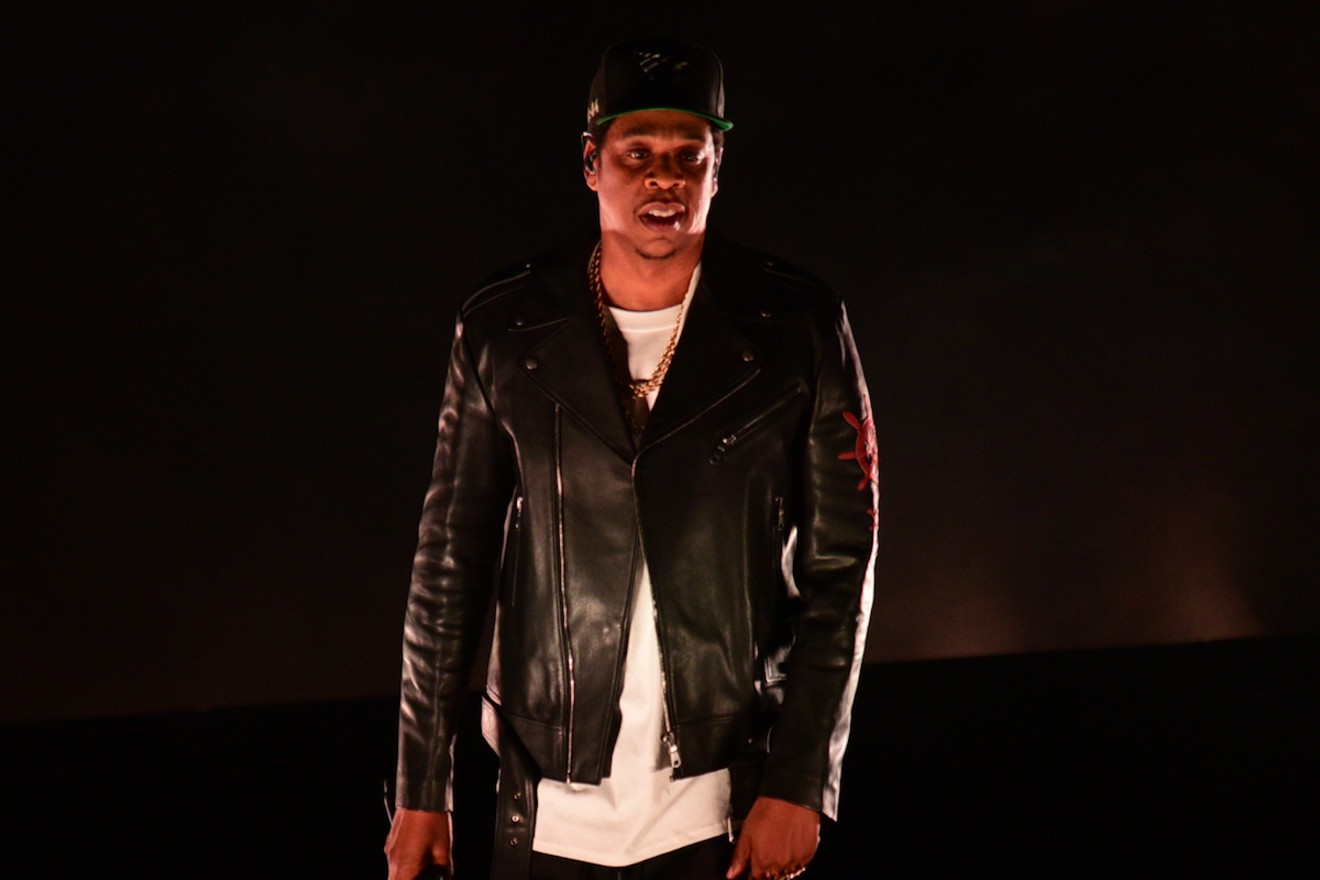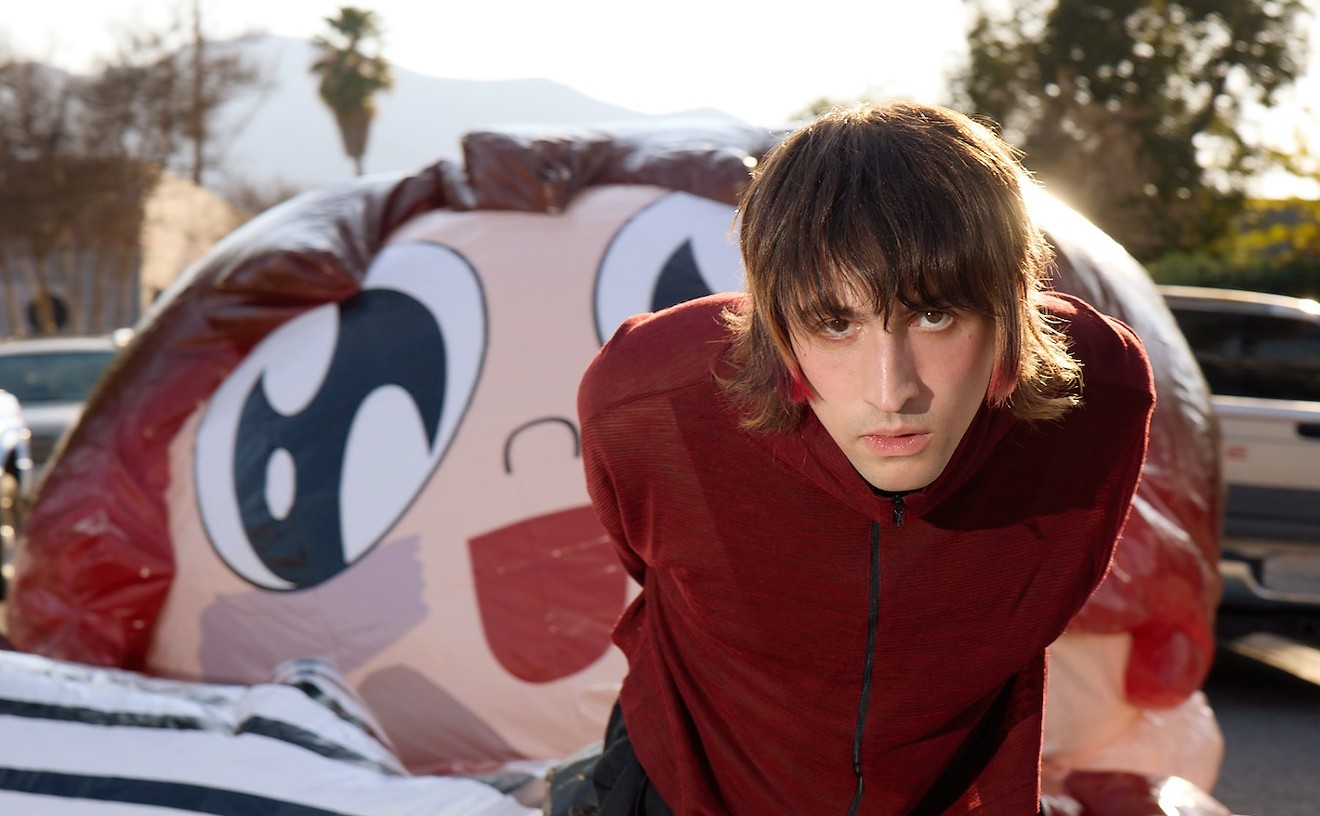Before they were slinging mud at each other on escalating dis tracks, Jay-Z and onetime mentor Jaz-O were collaborating on one of Jaz-O’s more successful singles, “Hawaiian Sophie.” It’s the sort of goofy, good-time pop rap from the late '80s that’s almost embarrassing if it weren’t for some truly smooth flow from both the headliner and his protégé.
Since then, however, during an illustrious 20-year career that landed the hip-hop legend in the 2016 class of inductees to the Songwriters Hall of Fame (inducted by President Barack Obama, no less), Jay-Z has evolved into not only a phenomenal artist but also a cultural juggernaut. His reach extends far beyond music into media and sports. He cemented his legacy in the annals of rap as “J-Hova,” the god of MCs, several album cycles ago.
Jay-Z could live the rest of his life without ever releasing another record. But this year's 4:44 is an LP he needed to drop — not for us, but for him.
With the release of his 13th studio album, he completes an evolutionary cycle as an artist and as a man, as a father and as a husband. Most impressive, Jay-Z, at the age of 47, is accomplishing something nearly no other middle-aged rapper can boast about: He’s pleasing longtime fans as well as garnering newer, younger ones.
Kanye West, who's 40, and rap duo Run the Jewels, whose El-P and Killer Mike will turn 42 this year, are Jay's closest competitors. But Kanye is a once-in-lifetime mad genius who might implode at any given moment, and RTJ found mainstream success only in the past five years. Jay-Z has been doing it longer and more consistently than either of them.
The strength of 4:44 is its lyrical content, as fans have come to expect from his releases. But there are no bangers or immediate hooks. This is a soul-baring affair accompanied by steady, J Dilla-esque beats and samples that allow Shawn Carter to address more than a few issues.
Internet sleuths, like prospectors sifting through streams, have spent plenty of time digging through the lyrics for clues to the rapper's personal life, but listeners don't have to look hard to find valuable nuggets. On 4:44, Jay-Z affectionately accepts his mother coming out as a lesbian, struggles with the rift between him and best friend Kanye, and addresses his failings with the Knowles sisters, both the infamous elevator incident in which Solange attacked him, and his infidelity during his marriage to Beyoncé.
The man who once sang “You know I thug 'em, fuck 'em, love 'em, leave 'em/'Cause I don't fuckin' need 'em,” on 1999’s “Big Pimpin’” has stripped away his ego and apologized to everyone he’s ever wronged.
In America's male-dominated society, after politics and religion there is hardly a culture more male-centric than rap. When most rappers are promoting themselves, which is almost always, they are the alpha and the omega. Between grandstanding and shit-talking, they will find aggressive and creative ways to persuade the audience that they alone are the top dog in a crowded kennel.
In 2001, Nas produced one of the most scathing mainstream dis tracks ever produced: “Ether.” In line after line, Nas disrobes and deconstructs Jay-Z until there is hardly anything left. But that was nothing compared to what Beyoncé did on Lemonade. She out-“Ethered” Nas and all other Jay-Z rivals before and after.
Lemonade was a powerful work of musical and visual art that promoted themes of female independence, resiliency, and black pride. But critical interpretations of the album were divided by gender in their analysis. Female authors focused on Beyoncé and her message; male authors focused on Jay-Z, making it all about him. It was as if the latter were happy to follow the egomaniacal blueprint set out by rap and do the work for Jay-Z on an album in which he never even appears.
4:44 pushes back against that interpretation. But though Jay-Z has evolved since his "Big Pimpin'" days, there are still some cringe-worthy moments on the latest record that show he's still saddled with flaws. For instance, he throws Eric Benét under the bus on the opening track, “Kill Jay-Z,” dredging up the actor’s failed marriage to Halle Berry in the early 2000s: “You almost went Eric Benét/Let the baddest girl in the world get away/I don’t even know what else to say/Nigga, never go Eric Benét.” The reference makes sense, but it seems cruel and, worse, hypocritical to drag someone else’s wretched behavior into an apology for your own. Benét hit back on Twitter reminding Jay-Z he’s now happily married to “the baddest girl.”
Also, “The Story of O.J." contains a line about Jews owning all the property, a stereotype so dated and irresponsible it’s almost laughable. Almost.
But 4:44 gets it mostly right. On that same track, Jay-Z makes some important points about colorism and what it’s like to be black in America. He criticizes the values so often espoused by mainstream rap and calls for loftier ambitions, including long-term financial goals.
For example, on “Family Feud,” the only track with vocals from his wife, he says, “What's better than one billionaire? Two.” Though the internet declares the line a reference to fellow entertainment mogul Diddy, is it not likelier Jay is referring to Beyoncé? Not only does she appear in the song, but also earlier this year CNN Money declared the power couple to be worth more than a billion dollars combined.
This reference reinforces the notion that Beyoncé and Jay-Z’s relationship goes far beyond marriage, toward a true partnership in every aspect of life, from business to parenting. They live very public private lives and very private public lives, disseminating just enough information to keep the public’s interest piqued but still maintaining a degree of distance, so 4:44 is probably the closest we will ever get to the heart of Shawn Carter and to the mind of Jay-Z. One hopes his relatable progression from vigilant, drug-slinging street tough to vulnerable dad and repentant husband is not only a reflection of his own journey but also an inspiration for the men he’s been preaching to all these years.
Jay-Z: 4:44 Tour. 8 p.m. Sunday, November 12, at the American Airlines Arena, 601 Biscayne Blvd., Miami; 786-777-1000; aaarena.com. Tickets cost $35.50 to $220 via ticketmaster.com.
[
{
"name": "Air - MediumRectangle - Inline Content - Mobile Display Size",
"component": "19274298",
"insertPoint": "2",
"requiredCountToDisplay": "2"
},{
"name": "Editor Picks",
"component": "17482312",
"insertPoint": "4",
"requiredCountToDisplay": "1"
},{
"name": "Inline Links",
"component": "18711090",
"insertPoint": "8th",
"startingPoint": 8,
"requiredCountToDisplay": "7",
"maxInsertions": 25
},{
"name": "Air - MediumRectangle - Combo - Inline Content",
"component": "17482310",
"insertPoint": "8th",
"startingPoint": 8,
"requiredCountToDisplay": "7",
"maxInsertions": 25
},{
"name": "Inline Links",
"component": "18711090",
"insertPoint": "8th",
"startingPoint": 12,
"requiredCountToDisplay": "11",
"maxInsertions": 25
},{
"name": "Air - Leaderboard Tower - Combo - Inline Content",
"component": "17482313",
"insertPoint": "8th",
"startingPoint": 12,
"requiredCountToDisplay": "11",
"maxInsertions": 25
}
]











